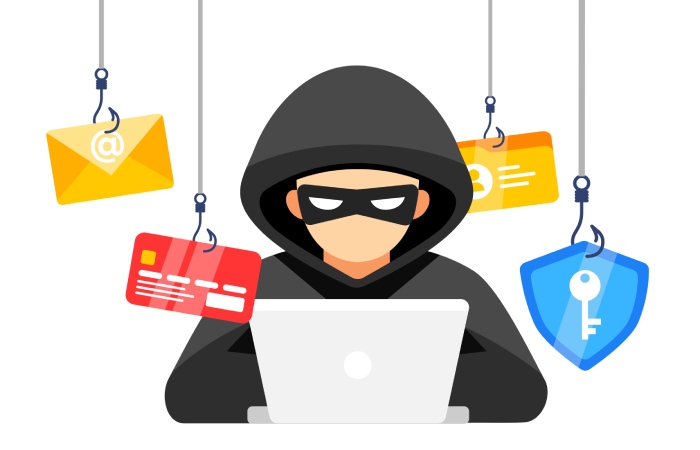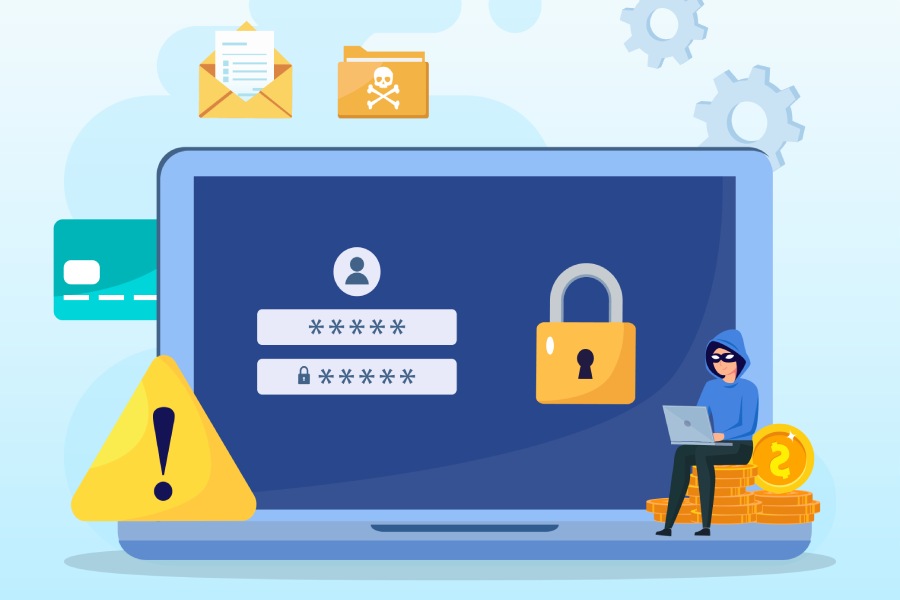Why Email Authentication Matters for Businesses
Emails are the bulwark of official business communications. But unfortunately, cybercriminals also use the same route to launch their malicious attacks. Hence, email authentication becomes crucial for organizations to prevent cyberattacks and protect their information assets.
While cyber-attacks have improved in quantum and severity over the years, the primary mode of delivery has mostly stayed the same because emails are still the most-preferred attack modes cybercriminals use. Therefore, email security has become a crucial aspect of every cybersecurity strategy that cybersecurity professionals or organizations must pay attention to. This article discusses why email authentication matters to businesses and the different evolving methodologies to ensure 100% email security.
Email Security Stats You Need to Pay Attention to!
Here are some crucial statistics pertaining to email security that you need to know about:
- The latest 2021 FBI IC3 report indicates that phishing remains the most prevalent threat in the US, with its victims increasing by 34% compared to the previous year.
- A Barracuda research report states that Gmail accounts for the mode of delivery for 91% of bait emails.
- Verizon’s 2022 DBIR shows the presence of a human element in 82% of data breaches that include stolen credentials and phishing.
That brings us to the discussion of why email security is crucial for every cybersecurity strategy.

Why is Email Authentication Critical for Businesses?
While awareness about phishing has increased, cybercriminals have improved their techniques and started using advanced methods like Business Email Compromise (BEC), email spoofing, and other modes to target unsuspecting victims to provide access to critical information assets. Therefore, email authentication has become essential because it makes it challenging for scammers to send phishing emails.
Email authentication allows the incoming servers to verify the genuineness of the email source and act accordingly. So, every email service provider should use the following email authentication tools to ensure 100% email security.
- Sender Policy Framework (SPF)
Sender Policy Framework, an email authentication protocol, allows the organization’s servers to specify who is authorized to send emails on their domain’s behalf. SPF is essential because it helps detect email spoofing attacks.
An SPF record is crucial in email security because it identifies and segregates phishing emails from those sent from an authorized sender IP address when added to the DNS servers.
An SPF record constitutes a DNS entry that contains the IP addresses of the official email servers that can send emails on behalf of the organization. Therefore, it improves email deliverability. The lack of an SPF record warns the recipient’s email servers that it could be a phishing attack. As a result, it enables the email server to direct the message to the spam inbox or even reject it outright. Hence, it ensures that genuine emails are not blocked and are delivered to the business’s primary inbox.
But SPF alone is insufficient to ensure 100% email security to businesses. It needs more advanced tools like DKIM and DMARC to provide a more secure environment.
- Domain Keys Identified Mail (DKIM)
Domain Keys Identified Mail (DKIM) is an improvement to SPF because it authenticates the transmitted email message and enables the organization to take responsibility for its transmission in ways that email service providers can verify. Thus, it helps protect unsuspecting employees and business customers from targeted email attacks.
The DKIM procedure involves three critical steps.
- Identifying the fields that require inclusion in the DKIM record signature. It can include the from address, the email subject, its body, and other particulars. These fields should remain unchanged during the email’s transit.
- The sender’s email platform encrypts these details and converts them into a hash format with a private key only accessible to the sender.
- Finally, the receiving email gateway validates the DKIM signature by finding a public key to match the encrypted private key to decrypt the message to the original hash string.
As a result, this procedure ensures that the email has not been intercepted and altered in its transit and that the email signer is the original owner of the email. DKIM and SPF work together in email security by preventing eavesdropping and data tampering. While SPF prevents email spoofing, DKIM ensures against email tampering in transit. Therefore, both SPF and DKIM are vital aspects of DMARC.
- Domain-based Message Authentication Reporting and Conformance (DMARC)
DMARC is a free and open technical specification used for authentication emails by aligning SPF and DKIM mechanisms. As a result, it protects businesses from the latest phishing attacks like spoofing and BEC.
Since DMARC is based on the results of SPF/DKIM, the email domain should have at least one of them in place. DMARC record checks SPF and DKIM status to authenticate whether the email passes SPF, DKIM, or both.
Besides authentication, DMARC instructs email servers to send XML reports to the reporting email address, providing insights on the email movement through the ecosystem using shadow IT.
Significance of SPF, DKIM, and DMARC for email
Email authentication tools are essential for businesses because they help filter out bad emails and ensure the proper delivery of genuine content. Thus, it protects users from cyber-attacks like BEC, email spoofing, CEO fraud, etc.
- DMARC assumes tremendous significance because organizations cannot identify genuine and fake emails without this tool. In addition, since statistics show that more than 90% of cyber-attacks originate through emails, DMARC becomes critical.
- DMARC, along with SPF and DKIM, prevents email fraud because it provides visibility of the domain’s usage and prevents unauthenticated senders from using the official email servers for sending their spoofing emails.
- These email authentication tools ensure email reliability by resolving email delivery issues. As a result, the organization’s primary inboxes receive genuine emails, leading to better productivity.
- DMARC has become a vital compliance requirement because regulatory institutions demand its usage to prevent cybercrime. As a result, these tools have become an integral part of every cybersecurity strategy.

Final Words
Emails are critical to business communications. However, the same emails become dangerous when misused by cybercriminals to launch their malicious attacks. Therefore, organizations should ensure email security by employing the best email authentication tools like SPF, DKIM, and DMARC. These tools ensure proper security for the emails by authorizing specific domains to send emails on behalf of organizations, preventing tampering with emails in transit, and ensuring delivery of genuine emails to the recipient’s inbox.





